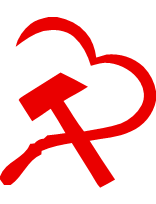The game has been picked up by some volunteers and still is being actively developed. It's still a lot of fun to play.
Melonius
Holy guacamole this guy writes 
Thanks I think I need to sit tight. In liberal economics, I think the value of a commodity is simply "What the market will pay," which is easy but unsustainable way to run a market place because of differences in information and the baked in incentive to hoard capital to produce commodities at lower prices / monopolize to charge higher prices than the market. I am looking to find a solution to the latent hoarding issue but I don't know if Marx ever solved it
Thanks for the clarification!
I'll wait until chapter 6 to come back it then, but ideally
The value of labor power varies across the globe
This shouldn't be the case, right?
Thanks, I think I'm getting caught up in the valuing over commodities as being a function of their labor. If my labor produces 20 linens, then my labor is worth 20 linens - the cost of the goods (inc depreciation of capital and transportation) to make the 20 linens. I can wait until the wages discussion to reopen that box though.
So without getting too far ahead, if it takes 1 hour of abstractly difficult work to get X ore, and 1 hour of abstractly easy work to get Y corn, we can safely assume that X ore is worth > Y corn, all else equal? Or would we require more information on other equivalent exchange rates?
(this is my guess, I'm pretty stoned and read this a few hours before you did)
Same, best way to read it!
I agree the examples are hyper idealized, but I don't think its in the contexts of a bourgeois economy. 20 linens = 1 coat works without someone price gouging, as a capitalist would do what they can to inflate the value of whatever their capital is producing. In the chapter 1 economy, having all worker labor = is an ideal state as well, as we can say that whether you create a coat or I create 20 linens, the labor value we impart is equivalent. I would expect a more flattened view of workers is an ideal under communism, not bourgeois economics.
I had a few thoughts/questions that might get addressed later. Chpt 1 is a lot of simple examples but I can't help but think on them more:
How, then, is the magnitude of this value to be measured? Plainly, by the quantity of the value-creating substance, the labour, contained in the article. The quantity of labour, however, is measured by its duration, and labour time in its turn finds its standard in weeks, days, and hours.
Maybe oversimplified here, but what about particularly difficult, dangerous, or unpleasant jobs? An hour in the mines is surely worth more than an hour driving trains. I can think of a lot of ways to properly value different jobs without resorting to trying to value the product, but it's odd it's not mentioned here when the next quote is.
Skilled labour counts only as simple labour intensified, or rather, as multiplied simple labour, a given quantity of skilled being considered equal to a greater quantity of simple labour.
In my mind, experience/training/knowledge is a form of capital. Time spent training or learning should be considered a part of the labor, so someone inexperienced who is making coats should be compensated the same as an expert making coats, assuming they are laboring the same, no? Again, I can think of ways of rewarding craftsmanship and experience without basing it on the product, but saying a coat made by one person is more valuable using non-commoditized attributes seems prone to rent seeking.
The same labour extracts from rich mines more metal than from poor mines. Diamonds are of very rare occurrence on the earth’s surface, and hence their discovery costs, on an average, a great deal of labour time. Consequently much labour is represented in a small compass.
How is this difference resolved in a global society with commodities? A poor mine yielding less than a rich mine - is the price paid the average labor cost so the rich mine miners are underpaid and poor mine miners overpaid? Are they paid their labor value and subject to the needs of the local factories, the poor mine is shut down?
It's my opinion that the mine should only operate if the ore is absolutely necessary or the transportation costs from the rich mine are prohibitive, in which case the rich mine would be paid less per ore while the poor mine is paid more per ore. This would keep the value of labor consistent between the two environs but I'm not sure this is what marx is saying or maybe it's just glossed over at this chapter?
There was, however, an important fact which prevented Aristotle from seeing that, to attribute value to commodities, is merely a mode of expressing all labour as equal human labour, and consequently as labour of equal quality. Greek society was founded upon slavery, and had, therefore, for its natural basis, the inequality of men and of their labour powers.
I see authors and journalists so often get close to the contradictions in something only to never reach the conclusion and state it. I assume it's intentional but sometimes I wonder if everyone's just fucking clueless. It's funny to see even Aristotle didn't get it, or died a grifter.
When these proportions have, by custom, attained a certain stability, they appear to result from the nature of the products, so that, for instance, one ton of iron and two ounces of gold appear as naturally to be of equal value as a pound of gold and a pound of iron in spite of their different physical and chemical qualities appear to be of equal weight. The character of having value, when once impressed upon products, obtains fixity only by reason of their acting and re-acting upon each other as quantities of value. These quantities vary continually, independently of the will, foresight and action of the producers. To them, their own social action takes the form of the action of objects, which rule the producers instead of being ruled by them.
People who do no work are unable to value the work, so they use shortcuts, trend lines, technical analysis to incant the price points. "An ounce of silver is always worth x ounces of gold so if gold goes up silver must too. " -someone who has never seen the inside of a mine
Could I get added to the list please?
Thanks for setting this up! 
I have a degree in econ and it's all useless baggage you have to unlearn. You're in a great place for kapital

If they liked it they'll hire you to be subbed daily